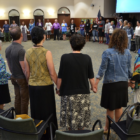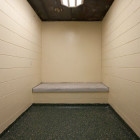
As youths face hefty court fines, some states find new ways for them to pay for their crimes
|
Courts have long mandated fees, aiming to hold youth accountable, deter them from future crime and often to cover the justice system’s administrative and other costs. Yet, advocates of juvenile justice reform contend that those conventional methods of demanding accountability from young offenders are counterproductive, neither serving the interests of youth nor their victims






